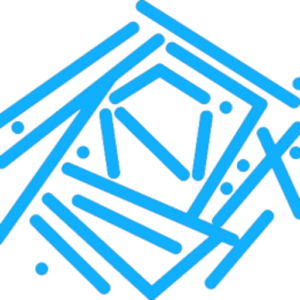Quantum computing is a rising field of technology that could guarantee to revolutionize the way we process data and information, fathoming complex issues that are at this stage past the reach of classical computers. Its foundation is based on the principles of quantum mechanics, a branch of modern material science that deals with particle behavior at even greater scales. Unlike classical computers, which utilize bits as the essential unit of data, quantum computers utilize quantum bits, or qubits. This refinement permits quantum computers to perform calculations at exponentially higher speeds, opening unused skylines in regions such as cryptography, artificial intelligence, and discovery of drugs.
The Basics: Classical Computing vs Quantum Computing
Classical computers operate using bits that represent data as either a 0 or a 1. All computing operations, from simple calculations to complex reenactments, are made up of these bits as the building blocks for their representation. In any case, in spite of the exceptional control of today’s classical computers, they are on a very basic level restricted by the twofold nature of bits. One can prepare data bit by bit and, as problems get more complex, the computational control needed increases altogether.
Quantum computing, on the other hand, utilizes the strange properties of quantum mechanics, particularly superposition and entanglement. These phenomena allow quantum computers to process multiple possibilities simultaneously.
Superposition: In quantum mechanics, particles can exist in multiple states at once. A qubit, unlike a classical bit, can represent both 0 and 1 simultaneously. This ability to be in multiple states at once allows quantum computers to perform many calculations at the same time.
Entanglement: When qubits become entangled, the state of one qubit is directly related to the state of another, no matter how far apart they are. This property enables qubits to work together in ways that classical bits cannot, vastly increasing computing power.
Quantum Interference: Quantum computers use interference to amplify correct solutions and cancel out incorrect ones. This process helps to find the best solution more efficiently than classical algorithms.
The range of possibilities in quantum computing is vast and diverse. Here are a few key zones where quantum computing can have a transformative affect:
Cryptography: One of the foremost prompts and significant impacts of quantum computing will likely be on cryptography. Current encryption strategies depend on the trouble of factoring large numbers, assignment classical computers battle with. Be that as it may, quantum calculations, such as Shor’s algorithm, can figure these numbers exponentially at greater speed, rendering conventional encryption strategies powerless. This has driven to a race to create quantum-safe encryption strategies to protect sensitive information in the post-quantum period.
Optimization Issues: Numerous businesses depend on understanding complex optimization issues, such as logistics, manufacturing, and finance. Classical computers can battle with these issues as they include assessing a tremendous number of combinations. Quantum computers, with their capacity to handle different combinations at the same time, might discover ideal arrangements more productively. This might lead to changes in regions like supply chain administration, traffic optimization, and financial portfolio administration.
Artificial Intelligence and Machine Learning: AI and machine learning often require vast amounts of computational power to analyze data and train models. Quantum computers could accelerate these processes by allowing for more efficient data processing and pattern recognition. This could lead to advances in areas such as natural language processing, image recognition, and autonomous systems.
Drug Discovery and Material Science: The discovery of new drugs and materials often involves simulating molecular interactions, which can be extremely computationally intensive. Quantum computers can simulate molecular structures and chemical reactions at the quantum level, potentially leading to breakthroughs in the development of new drugs, materials, and even clean energy technologies.
Current Challenges in Quantum Computing
Despite the immense potential of quantum computing, there are significant challenges that need to be overcome before quantum computers can be widely adopted.
Error Rates and Stability: One of the primary challenges is quantum decoherence, where qubits lose their quantum state due to interactions with their environment. This can lead to errors in calculations. Quantum frameworks are greatly sensitive to external noise, making it troublesome to preserve steady qubits for long periods. Quantum error rectification could be a field of research pointed at creating strategies to rectify these errors, but it is still in its early stages.
Scalability: Building a quantum computer with a large number of qubits is excessively troublesome. Right now, most quantum computers have as it were some dozen qubits, but for viable applications, we may require thousands or indeed millions of qubits. Researchers are trying to find out ways to scale up quantum frameworks, but there are still technical and engineering obstacles to overcome.
Cost and Accessibility: At present, quantum computing is still within the test stage and is incredibly expensive. Building and keeping up quantum frameworks requires advanced technology and ability. In any case, companies like IBM, Google, and Microsoft are contributing intensely within the field, and there are trusts that quantum computing will get to be more open within the coming decades. While we are still in the early stages of the quantum insurgency, progress is being made quickly.
Although we are still in the beginning stages of the quantum revolution, progress is being made at greater speed. Governments and private companies around the world are contributing billions of dollars in quantum R&D. Activities such as the Quantum Computing Roadmap by IBM and Google’s Quantum AI program are pushing the boundaries of what is conceivable.



5 Comments
almanya sanal sunucu ihtiyacim icin uygun paketleriniz
Lütfen İngilizce sorunuz.
merhaba sanal sunucu paketleriniz için sitenizi ziyaret ettim paketleri cok begendim
Teşvik edici sözleriniz için teşekkür ederiz.
Cryptocurrency trading news